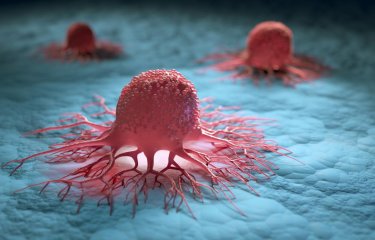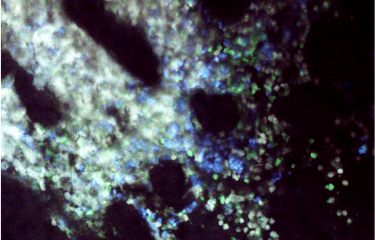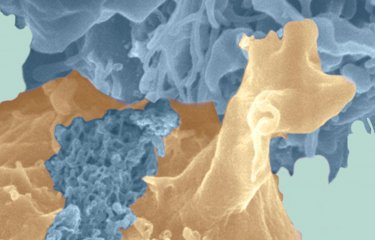A team of researchers from the Institut Pasteur and the CNRS has recently identified a protein that can specifically control the activity of an enzyme whose dysfunction has been linked to the development of several types of cancer. This work reveals a potential therapeutic target for the treatment of certain tumors. This study is being published today in the scientific journal Molecular Cell.
Press release
Paris, febuary 24, 2012
The Plk1 enzyme is involved at each step of mitosis, a key process in the life of a cell which enables the mother cell to split into two daughter cells.
In multiple types of cancers (breast, colorectal, stomach, esophageal, pancreatic, skin, uterine, throat, some forms of lung cancer, etc.) Plk1 protein expression is increased. For several years, in an effort to control over-production of Plk1, the scientific community has been searching ways to identify specific inhibitors for therapeutic use. Unfortunately, research efforts have been disappointing, as the candidate molecules have all had major side effects due to their lack of specificity.
Now, a team led by Robert Weil, from the Cell Signaling and Activation Unit (Institut Pasteur and CNRS) has identified a protein, Optineurin, capable of specifically deactivating Plk1. This in cellulo study shows that in the absence of Optineurin, Plk1 activity is no longer regulated. This results in major cellular abnormalities such as chromosome separation defects, cells with multiple nuclei, etc. This study further describes how this control mechanism centers on the reciprocal regulation of the activities of both Optineurin and Plk1.
Until now Optineurin has been known for its antibacterial and antiviral properties. Its recent identification as a specific regulator of Plk1 opens new avenues for the treatment of tumors linked to the over-expression of Plk1. Targeting Optineurin should hinder the uncontrolled cell proliferation characteristic of certain cancers.
Source
Plk1-dependent phosphorylation of Optineurin provides a negative feedback mechanism for mitotic progression, Molecular Cell, published February 24, 2012
David Kachaner1, 2, Josina Filipe1, Emmanuel Laplantine1, Angela Bauch3, Keiryn L. Bennett3, Giulio Superti-Furga3, Alain Israël1, and Robert Weil1¶.
1 Institut Pasteur, Unité de Signalisation Moléculaire et Activation Cellulaire, CNRS URA2582, 75724 Paris Cedex 15, France.
2 Univ. Pierre et Marie Curie, Cellule Pasteur UPMC, rue du Dr Roux, 75015 Paris, France.
3 Research Center for Molecular Medicine of the Austrian Academy of Sciences, 1090 Vienna, Austria.
Contacts
Institut Pasteur Press Office
Nadine Peyrolo / +33 (0)1 45 68 81 47
Sabine D'Andrea / +33 (0)1 44 38 92 17
presse@pasteur.fr





